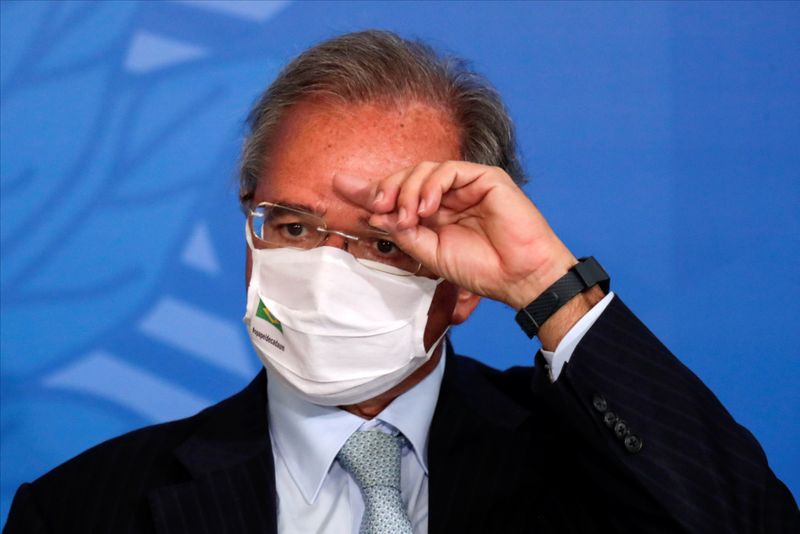BRASILIA (Reuters) – Brazil expects to join the Organisation for Economic Cooperation and Development club of rich nations within a year, Economy Minister Paulo Guedes said on Tuesday, adding that around two-thirds of the preparatory work has already been completed.
In a live online event hosted by the Milken Institute, Guedes also said the government was planning an initial public offering of the newly created ‘digital’ arm of state-run Caixa Economica Federal.
“We are about to join the OECD. We are fulfilling two-thirds of what the requirements are, and probably in one year we should be joining,” Guedes said, highlighting advances on transparency, regulatory, anti-corruption and procurement protocols.
U.S. Secretary of State Mike Pompeo said on Monday that Brazil was getting closer to joining the OECD, with the support of the United States. “We want this to happen as quickly as we can,” he said.
Guedes reiterated his conviction that the government’s economic reform agenda of privatizations, asset sales, fiscal discipline and deregulation was back on track after spending around 10% of gross domestic product this year fighting the COVID-19 pandemic.
The largest part of that fiscal support was emergency payments to millions of Brazil’s poorest and most vulnerable people via Caixa Economica Federal, whose digital bank Guedes said suddenly has millions of new customers.
“We digitalized 64 million people. How much is a bank with 64 million people worth? Low-income people, but people that were (bank-registered) for the very first time, so they are going to be loyal for the rest of their lives,” Guedes said.
“We are planning an IPO of this digital bank that we produced in less than six months,” he said.
Guedes also said Brazil’s policy shift over the last 18 months to looser monetary and tighter fiscal conditions had naturally led to a weaker currency, but that the government was working with the central bank on mechanisms for investors and companies to hedge that risk.
He also repeated his comments from Monday the Brazilian economy will shrink by around 4% this year. That is far less than many economists had feared a few months ago, in part due to the weak currency boosting exports, Guedes said.
(Reporting by Jamie McGeever; Editing by Richard Chang)






















